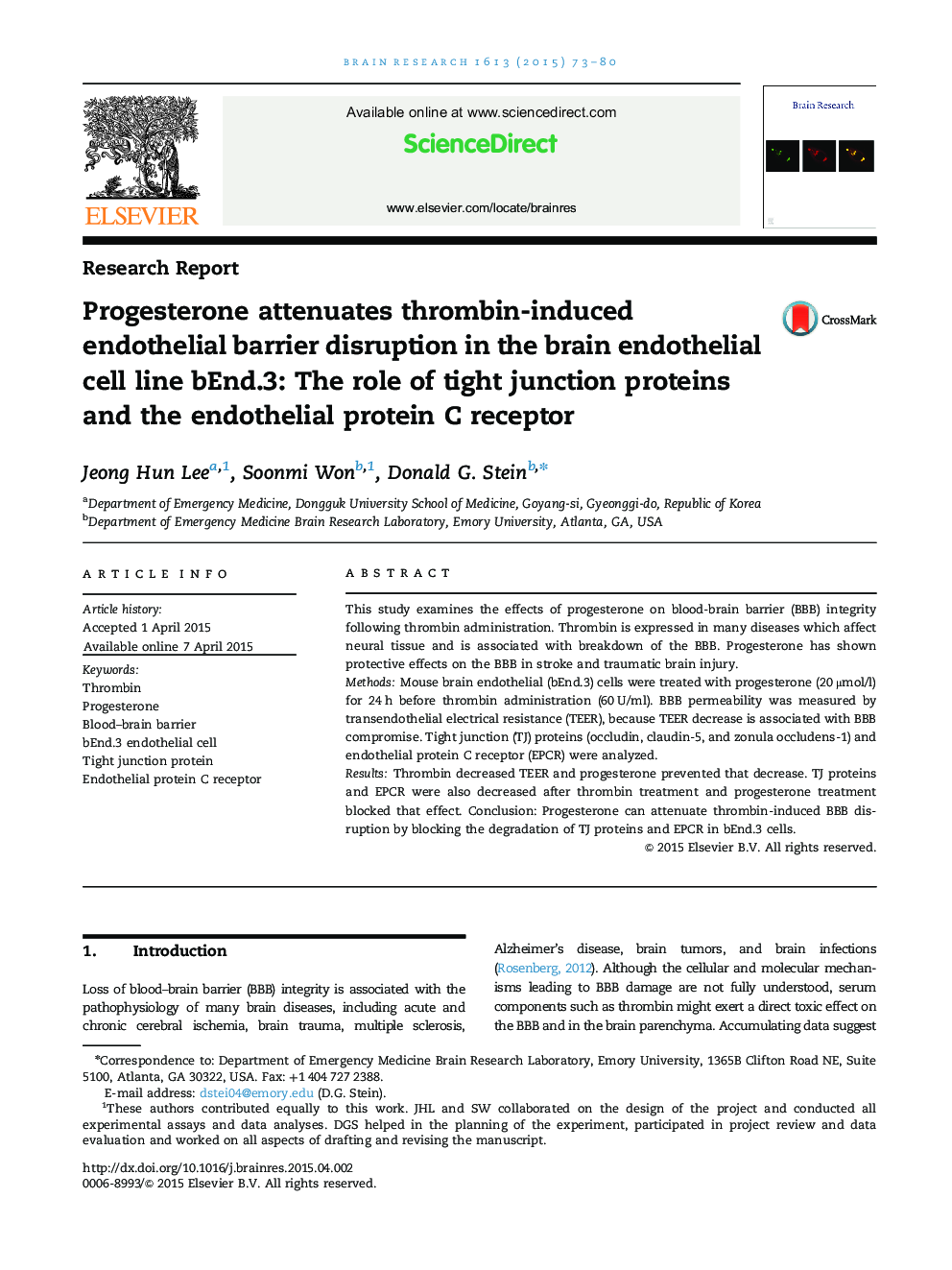| Article ID | Journal | Published Year | Pages | File Type |
|---|---|---|---|---|
| 4323799 | Brain Research | 2015 | 8 Pages |
•High thrombin levels cause BBB disruption in endothelial cell line bEnd.3.•High thrombin levels significantly reduce the amount of tight junction proteins.•High thrombin levels induce reduction of EPCR expression.•Decreased EPCR expression caused by thrombin is prevented by progesterone pre-treatment.•Progesterone reduces increased expression of thrombin after stroke.
This study examines the effects of progesterone on blood-brain barrier (BBB) integrity following thrombin administration. Thrombin is expressed in many diseases which affect neural tissue and is associated with breakdown of the BBB. Progesterone has shown protective effects on the BBB in stroke and traumatic brain injury.MethodsMouse brain endothelial (bEnd.3) cells were treated with progesterone (20 μmol/l) for 24 h before thrombin administration (60 U/ml). BBB permeability was measured by transendothelial electrical resistance (TEER), because TEER decrease is associated with BBB compromise. Tight junction (TJ) proteins (occludin, claudin-5, and zonula occludens-1) and endothelial protein C receptor (EPCR) were analyzed.ResultsThrombin decreased TEER and progesterone prevented that decrease. TJ proteins and EPCR were also decreased after thrombin treatment and progesterone treatment blocked that effect. Conclusion: Progesterone can attenuate thrombin-induced BBB disruption by blocking the degradation of TJ proteins and EPCR in bEnd.3 cells.
